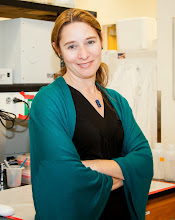 |
|
Image modified from www.clker.com
|
A good public talk about science should both inform and
entertain (in my opinion, any
scientific talk should do both!). At FameLab, with three
minutes and no PowerPoint crutch, contestants seek the right balance of
information and fun. The judging
criteria really hit this balance using the three C’s of science communication:
Content, Clarity, and Charisma. These C’s form the backbone for any good talk,
and we’ve looked at components of all of them before. Here, I want to remind readers that they all fit
together.


